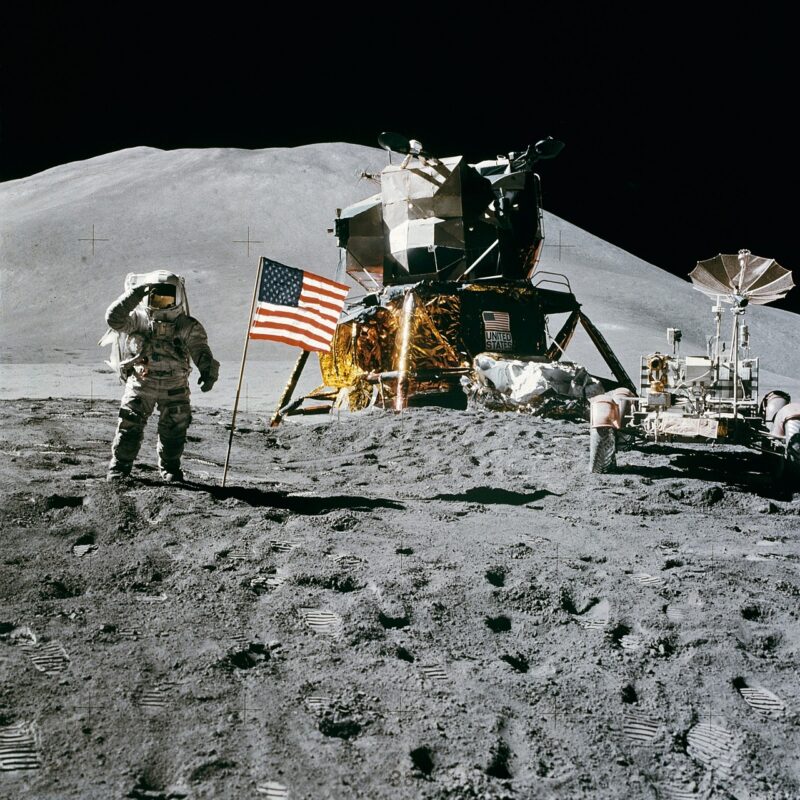
On July 20, 1969, the world watched in awe as American astronaut Neil Armstrong set foot on the lunar surface. This moment, broadcast live to millions across the globe, was more than just a technical achievement; it was a beacon of hope and unity during a tumultuous time in history. The moon landing transcended borders, ideologies, and conflicts, even if only for a brief moment. This article delves into the moon landing’s impact on global unity, the geopolitical context of the era, and its lasting significance in our collective memory.
1. The Cold War Context
The moon landing didn’t occur in a vacuum; it was set against the backdrop of the Cold War—a time characterized by political tension and competition between the United States and the Soviet Union. Following World War II, the world was divided, not only by ideology but also by military power, technological advancement, and space exploration goals. The race to the moon was emblematic of this rivalry.
The launch of Sputnik in 1957 by the Soviet Union marked the starting point of the space race. It was a moment of shock for the U.S., which suddenly felt it had fallen behind in technological prowess. In response, President John F. Kennedy boldly declared that America would land a man on the moon before the end of the decade—a goal that ignited national pride and a sense of purpose.
2. The Global Audience
As Apollo 11 approached the lunar surface, it was impossible to ignore the global audience that awaited the momentous event. People from diverse cultures and backgrounds tuned in to their radios and televisions, often gathering in community spaces to witness history unfold.
In a politically and socially fragmented world, this shared experience fostered a sense of unity among viewers. The sight of humanity reaching for the stars inspired dreamers and wanderers from all corners of the globe, cutting across national and ideological lines.
* **Shared Emotions:**
For many, the moon landing represented a genuine shared human achievement, something that could uplift the human spirit. Amidst the civil rights movements, the Vietnam War, and political unrest, the landing gave people something to celebrate collectively.
* **Averting Conflict:**
During the live broadcast, Soviet citizens watched, often alongside Americans. Even though their governments were in competition, the event provided a common narrative that temporarily curtailed tensions. Families across countries celebrated achievements in science and technology, reinforcing the notion that space exploration was a joint human endeavor.
3. The Messages of Peace and Unity
The moon landing’s impact was not solely about national pride; it also contained messages of peace. Armstrong’s famous words as he stepped onto the moon, “That’s one small step for [a] man, one giant leap for mankind,” conveyed a deep humanity that transcended countries and conflicts.
The Apollo 11 mission culminated in a profound sense of togetherness; people of different nations felt a bond as they celebrated this scientific victory. In retrospect, notable figures like Martin Luther King Jr. recognized the power of such an occurrence. He pointed out that this triumph belonged to all humanity, not just to the U.S. or the Soviet Union.
* **The Space Race as a Catalyst for Peace:**
The race for the moon illustrated that competition could yield remarkable results when driven by cooperation and a common goal. Programs designed to share information about space travel and exploration emerged, reflecting a desire to find common ground, even if it was born from rivalry.
* **Cultural Exchange:**
In the aftermath of the landing, many countries initiated their own space programs, leading to a new age of exploration. This effort provided opportunities for cultural exchange and collaboration within the scientific community that bridged divides.
4. The Legacy of Unity: Looking Back and Forward
While the moon landing provided an unprecedented moment of unity, it did not erase underlying tensions. The Cold War continued for decades. However, the global reactions to July 20, 1969, encouraged dialogues around cooperation beyond earthly borders.
* **Lasting Inspirations:**
Future generations would look back on this pivotal event as one of the great unifying moments in human history. The moon landing is often invoked in discussions about global challenges, such as climate change and international collaborations on scientific research. It serves as a reminder of what humanity can achieve when it works together.
* **Bridging Differences:**
Today, as we explore Mars and beyond, the spirit of unity and collaboration is essential, especially on complex issues like space debris management, climate science, and astrobiology. The lessons learned from the moon landing resonate even now; they remind current leaders and citizens alike that progress comes from collective effort.
5. Conclusion: A Reflective Moment in History
In retrospect, the moon landing was not just about setting foot on a celestial body; it was about igniting hope, fostering unity, and celebrating the spirit of humanity. As we face contemporary challenges, the memory of that accomplishment provides a valuable perspective:
* We are stronger together.
* Innovation thrives with collaboration.
* Humanity’s dreams are universal and worth pursuing.
The undying echoes of that one small step remind us that even in our most divided moments, the potential for connection exists. As we push the boundaries of our knowledge and exploration, we must remember the power of a united humanity in the face of adversity. Through understanding, learning, and striving for a greater purpose, we can aim for not only personal or national success but a more cohesive world.







